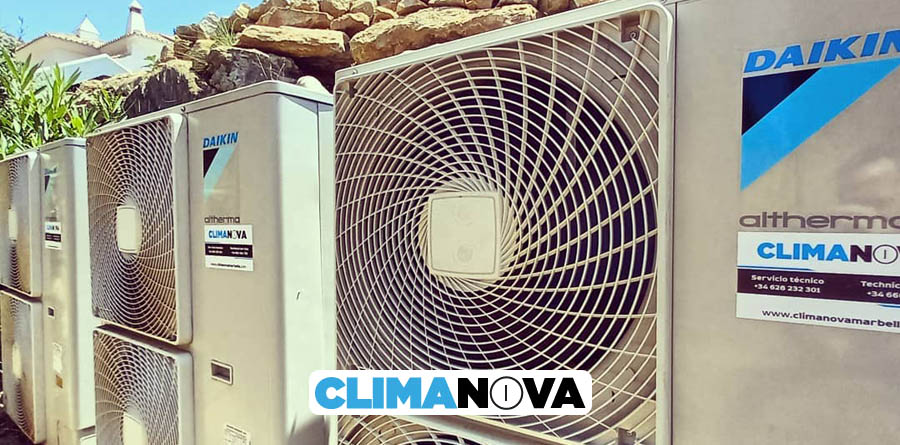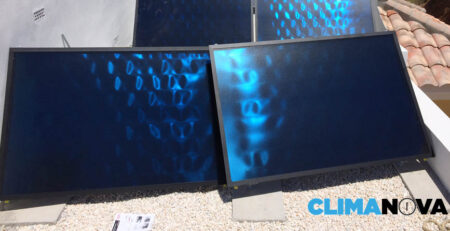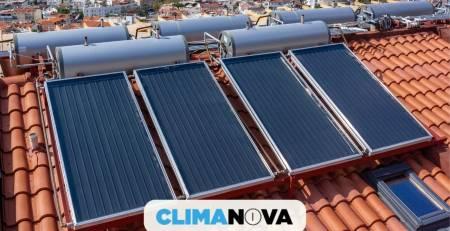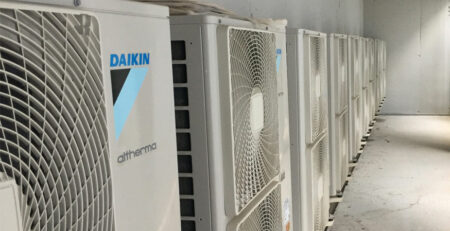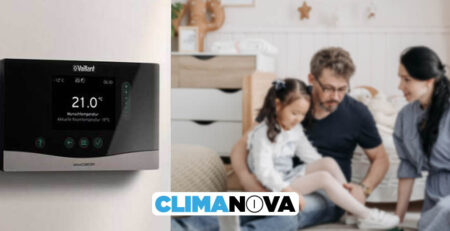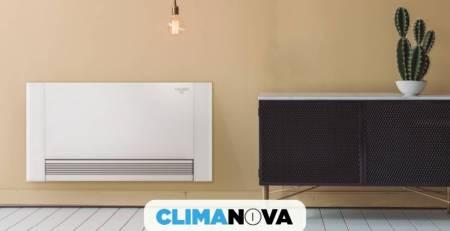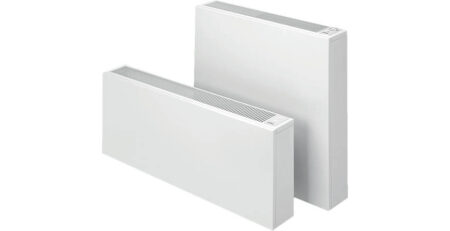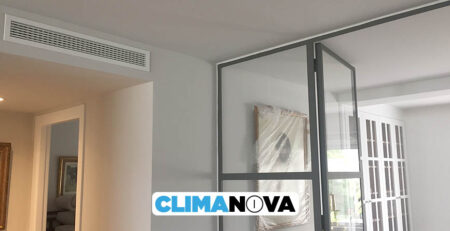The heat pump for heating and domestic hot water is an excellent alternative with great benefits compared to conventional systems.
We never tire of repeating it, sustainability is not a fad, it is where all industries are heading. An example from just this week: Mercedes announces that all its factories will be powered by renewable energy by 2022.
The heat pump is a sustainable and environmentally friendly alternative. In fact, it is classified as renewable energy. This is due to its ability to obtain energy cleanly from natural and unlimited sources.
Below we explain how this technological solution allows you to air-condition your home and produce hot water.
How does the heat pump for heating work?
The heat pump is a very efficient system, especially for heating. Its operation is based on the 2nd principle of thermodynamics, which can be summarised as follows: “Heat flows spontaneously from a hot source to a cold source, and not the other way round, until their temperatures equalise”.
As an example, we can use a glass of water to which we add ice. Actually, the ice does not cool the drink, it is the drink that transfers its heat to the ice, the latter changing its state as its temperature increases.
What heat pumps do is to extract heat from the outside air (air source heat pump) or from the ground (geothermal) to evaporate a cooling liquid and with the help of a compressor increase its temperature to finally transfer it to the inside of the home or to running water.
Fortunately, technological advances allow a heat pump to reverse its operation and also be very efficient for cooling, but where they are really highly efficient is for heating and for heating water, in fact it is the main solution for heating swimming pools.
Types of heat pumps
We have discussed it above and here we will explain it in more detail. The most common types of heat pumps are:
- Air-to-air heat pump: It takes heat from the air in one room and transfers it to the air in another room. This system is used by many air conditioners.
- Air-to-water heat pump: It takes heat from the air and transfers it to a water circuit that supplies the hot water or heating system (low temperature radiators or underfloor heating). This system is used in air source heat pumps.
- Water-to-water heat pump: Obtains heat from underground water pockets and transfers it to the water circuit of the dwelling. This system is used in hydrothermal systems.
- Ground-water heat pump: Obtains heat from the ground through buried pipes and transfers it to the water circuit of the home. This system is used in geothermal energy.
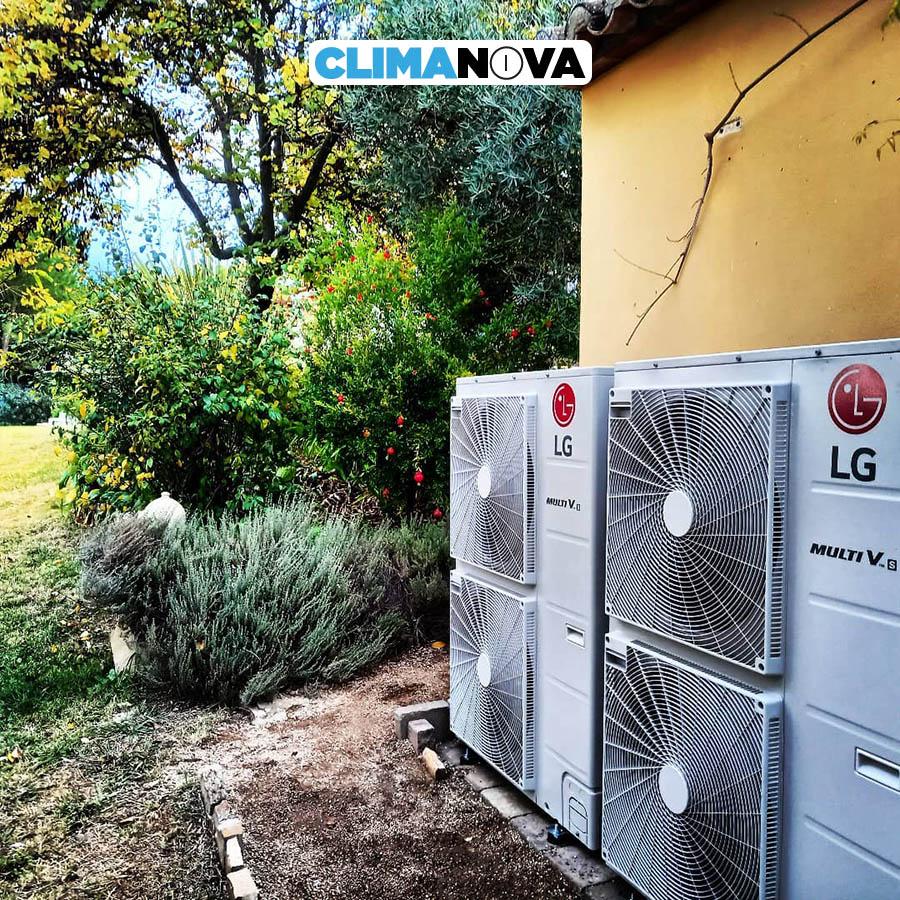
Benefits of the heat pump for heating
The great advantage of the heat pump over conventional systems is its ability to supply more useful (heat) energy than it needs to operate (electricity). This energy efficiency can be as high as 400% in some models.
It is undoubtedly more efficient than other systems such as gas, diesel, let alone 100% electric systems. In addition, if we do not use fossil fuels, we save another bill and it is better for the environment.
However, keep in mind that the level of efficiency or performance, also called COP (Coefficient of Perfomance), will vary according to our geographical location and the power of the equipment. This parameter simply divides the energy produced by the energy consumed.
Of course, heating water in Burgos in the middle of winter is not the same as heating water for a home in Marbella during the month of February.
That is why we recommend getting professional advice before buying a heat pump. An expert knows the COP parameters of the equipment they sell, as well as the average seasonal performance parameters (SPF) in the area where we live and will know how to recommend the equipment that best suits our needs and budget.
Consumption of a heat pump
The consumption of a heat pump is a key issue for many consumers. This is understandable, so we are going to answer this question as well.
A heat pump can reduce heating electricity consumption by up to 70% compared to conventional systems. It’s not magic, it’s simply because it needs little electricity to operate and much of the heat it generates comes from the outside air.
We have already given an important fact about efficiency, now that we are talking about consumption we can give a practical example. Let’s suppose that our heat pump is said to have a COP 3, this means that it will have an efficiency of 300%, or in other words, for every kilowatt hour of electricity consumed for the system to work, the heat pump provides 3 kWh of energy in the form of heat to the storage tank.
Of course, the higher the COP the better, but as mentioned above this will depend on aspects such as geographical location and the power of the equipment.
If you live in Marbella or the surrounding area and you want to install a heat pump for heating your home and producing hot water, contact Climanova today or fill in the following form to obtain a personalised quote without obligation.
